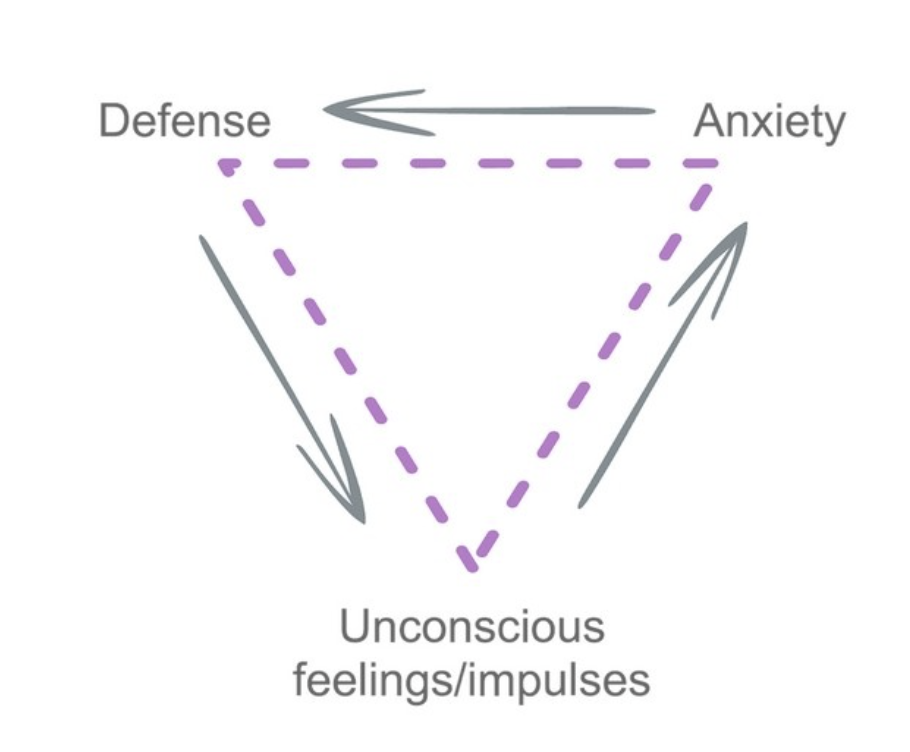
Psychodynamic Therapy in Newport Beach
Psychodynamic Therapy (Psychoanalysis)
Psychodynamic therapy is a modern evolution of classical psychoanalysis, offering a thorough and comprehensive understanding of personality and emotions. Many common psychological concepts—projection, denial, displacement, repression—originate from this tradition dating back to Freud and his contemporaries. Personality patterns such as narcissism, borderline traits, and obsessive-compulsive tendencies are products of over a century of psychodynamic research, extending Freud’s foundational insights. Without psychodynamic therapy, these essential understandings simply wouldn’t exist.
At its core, psychodynamic therapy rests on the premise that what we refuse—or are unable—to know, confront, or understand within ourselves holds the greatest power over us. We tend to repeat unconscious patterns from our past until they are directly addressed in therapy. The approach places special emphasis on our earliest and most significant relationships, tracing foundational patterns back to their origins. Until we own and digest these past experiences, we navigate the present and future in many ways blind to the underlying “code” driving our behaviors. Discovering this code through therapy can profoundly reduce suffering by answering the vital question: “Who are you?”
Psychodynamic theory views personality as a set of interpersonal habits shaped by how we learned to regulate our emotions in relation to others during early life. We replay familiar dynamics with people and situations until the underlying issues are resolved. These habitual patterns cluster into recognizable “personality types,” providing a comprehensive framework for understanding emotional wounds, defense mechanisms, and the ways people protect themselves and regulate feelings.
As psychodynamic therapists, our goal is to help you become more honest with yourself—emotionally, psychologically, and relationally. We encourage and support you in safely opening to your emotions while exploring the truths of your life experience. At the same time, we help you connect the dots between your past and present, increasing your chances of living a satisfying, purposeful life.
This approach draws on over a hundred years of collective wisdom, helping move threatening unconscious material—thoughts, emotions, experiences—into conscious, manageable awareness. Clients often describe psychodynamic therapy as “deep, meaningful, healing, insightful, and powerful.”
If you want to explore who you are, understand your personality better, improve your relationships, or gain greater insight, psychodynamic therapy is an excellent fit. It’s a roots-up healing process with an outstanding track record of success.
For further reading, visit our Posts page:
Major focuses of the psychodynamic approach include:
Expressing and understanding affect and emotion
Uncovering subconscious emotions, thoughts, and anxieties
Exploring defenses against difficult emotions and their negative consequences
Identifying avoidance patterns that hinder therapeutic progress
Emphasizing past experiences and their influence
Recognizing patterns in thoughts, feelings, actions, and relationships
Focusing on interpersonal experiences and dynamics
Valuing the therapeutic relationship itself as a healing tool
Exploring wishes, dreams, and fantasies
Frequently Asked Questions
Psychodynamic therapy is a depth-oriented form of therapy aimed at targeting root issues. Its focus is on how patterns of our early environments are cemented into our adult styles of work, love, and play.
Psychodynamic therapy is a powerful, transformative type of therapy that helps people process emotions and develop insight at the deepest level. It relies on decades of research from master clinicians in psychoanalysis and attachment therapy. This is a unique and highly effective specialty of our group.
Psychodynamic therapy is all about processing emotion and developing insight. We collaborate with you in unearthing core memories and experiences in your life and drawing important connections to the challenges and suffering you are currently facing. You can expect major “aha!” moments and healing in some of the deepest ways therapy has to offer.
The available research shows enormous benefits to this form of therapy. In fact, the literature on psychodynamic therapy supports some of the most effective and long-lasting change possible. It is effective at treating anxiety, depression, relationship issues, attachment disorders, obsessive compulsive disorder (OCD), addiction and trauma.
Our clients frequently share that this approach is different from anything they had experienced before and believe it to be a significant part of their change process and healing.
A fellow psychodynamic psychologist has written several engaging articles on the effectiveness of this approach, you can find them here:
Yes! We are one of the few groups in the area that specialize in this type of therapy. We believe this is the secret sauce of our group and one of the reasons we have such a positive reputation for providing quality, life-changing therapy. Reach out to us if you would like to find out more about this approach.
First, you’ve found one! Some other great ways to search for psychodynamic therapists near you is on Psychology Today or one of the local Psychoanalytic professional communities in the area.
One of the things that I encourage patients seeking therapy to do is look for reviews, personal experiences, and ask a prospective therapist if they practice this form of therapy specifically.
The key principles of psychodynamic therapy are:
- A focus on affect and expression of emotion and putting words to feelings
- Exploration of attempts to avoid distressing thoughts and feelings – this is often much more complicated and sneakier than what appears on the surface or what one knows about themselves already.
- Identification of recurring themes and patterns – particularly one’s defensive patterns and personality styles aimed at avoiding threatening emotions
- Discussion of past experience – identification of recurring themes in relating to others, particularly early attachment figures, that manifest in one’s thoughts, feelings, relationships, and self-concept).
- Focus on Interpersonal relationships past and present – this is often where the breadcrumbs lie that take us to the issues that really need to be dealt with.
- A focus on the therapeutic relationship – the patterns that are a part of one’s relational/emotional history are likely to emerge in the patient-therapist dynamic. This is all grist for the mill and identifying these “reenactments” are often a powerful part of the process.
Exploration of fantasy life – we encourage our patients to free-associate and allow themselves to speak freely, in an un-editing way during our sessions, this is often an incredible gateway to identifying deep psychological issues and conflicts.
A long-term commitment isn’t necessary. We encourage our patients to take it a session at a time before deciding to be all-in or all-out. The answer to this question becomes more obvious after the first few sessions after the depth and breadth of issues come into plain sight for both therapist and patient. However, we are very strict on session attendance meeting the standard of care, once per week. Any less and it’s just too difficult to go into depth on anything and the therapy becomes more of a check-in than a change process.
Of course! We encourage patients to do their own research and read reviews on the therapists they are interested in. Ours can be found on both our Google, Yelp, and Healthgrades pages. We think it’s especially important that anyone practicing psychodynamic therapy has actually done this type of therapy themselves. This is the case for us and we believe it is an art best learned through experience.
This is a great question! We like to make this question more of a conversation than give a blanketed reply. Some of the other therapies we offer are Cognitive Behavioral Therapy (CBT) and Emotion Focused Therapy (EFT).
We typically use elements of each in tandem with other therapeutic approaches. Anything too stiffly implemented creates a rigid, ineffective therapy. However, most therapies tend to lean more on certain therapeutic approaches over others given the clients personality, goals, and clinical issues.
We would love to discuss who in our group would be a best fit and which approach you would likely benefit from. Give us a call!

